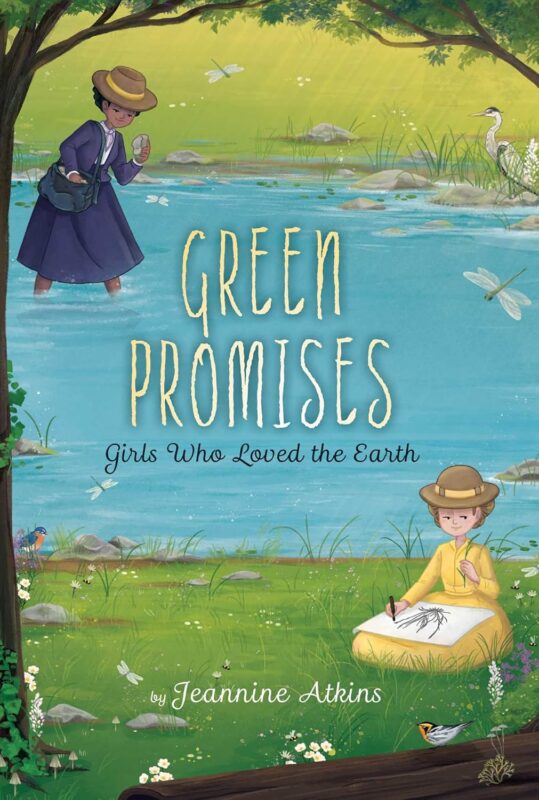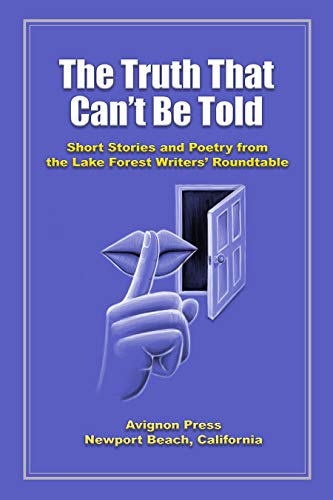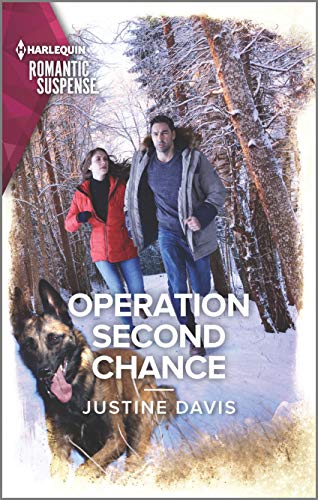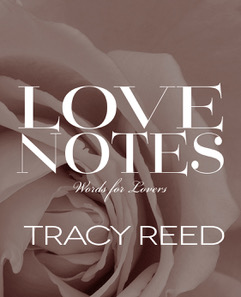Yearning by Neetu
September 26, 2019 by Neetu Malik in category Poet's Day by Neetu Malik tagged as Neetu, tears
Yearning
I glisten in tears
like an April dawn,
covered in dew
like blades of grass,
whispering notes
like softly falling raindrops,
I call your name
like one who is lost –
listen achingly for the sound
of your answering call.
© Neetu Malik
Spotlight on Debra H. Goldstein
September 24, 2019 by A Slice of Orange in category Spotlight tagged as A Sarah Blair Mystery, cozy mysteries, Debra H Goldstein

Judge Debra H. Goldstein is the author of Kensington’s new Sarah Blair cozy mystery series, which debuted with One Taste Too Many on December 18, 2018. She also wrote Should Have Played Poker and 2012 IPPY Award winning Maze in Blue. Her newest release is another Sarah Blair cozy mystery, Two Bites Too Many.
Her short stories, including Anthony and Agatha nominated “The Night They Burned Ms. Dixie’s Place,” have appeared in numerous periodicals and anthologies including Alfred Hitchcock Mystery Magazine, Black Cat Mystery Magazine, and Mystery Weekly.
Debra served on the national boards of Sisters in Crime and Mystery Writers of America. She is a past president of Sisters in Crime’s Guppy Chapter and is the president of the Southeast Chapter of Mystery Writers of America.
Find out more about Debra
Website
Facebook
Twitter
Jan Ryan’s Interview with Debra
Excerpt from Two Bites Too Many by Debra H. Goldstein

The rising decibel of the mutterings in the room indicated the natives were getting restless. Her mother had joked that nothing could start without Lance, but it wasn’t like Maybelle to keep people waiting.
Sarah checked her phone to see if she had a message from her mother.
None.
Commotion near the door used by the council members caught Sarah’s attention. Bailey, the loan officer, stood in the doorway. This time he wasn’t burdened down with a pile of papers when he scurried into the room toward the dais. If it was possible, Sarah thought his face was even paler than before. Although he went straight to Anne Hightower, who sat erectly next to Lance’s empty chair, instead of quite facing Anne, Bailey was intently scanning the audience. He froze when his gaze met Sarah’s.
“It’s Mr. Knowlton. He’s dead!”
Not sure if she’d heard right, Sarah maintained an unbroken stare with Bailey. Only when he repeated “he’s dead” and added “your mother” did she break the linkage of their gazes to push her way out of her row and the auditorium . . .
Some Books by Debra H. Goldstein
TWO BITES TOO MANY BY DEBRA H. GOLDSTEIN—A REVIEW BY VERONICA JORGE
September 22, 2019 by Veronica Jorge in category Book Reviews by Veronica Jorge, Write From the Heart by Veronica Jorge tagged as A Sarah Blair Mystery, Book reviews, cozy mysteries, Debra H Goldstein, Two Bites Too Many

Debra H. Goldstein strikes again! With the pen that is. Her new cozy mystery, TWO BITES TOO MANY, Book 2 of her Sarah Blair Mystery Series, reunites the reader with the twins, Sarah and Emily.
We first met the twins in Debra’s debut cozy mystery novel, One Taste Too Many, (reviewed by this writer in the January 22, 2019 post). Emily, a chef, was accused of poisoning her sister Sarah’s ex-husband. The twins combined wits and skill to find the real killer.
In TWO BITES TOO MANY , Sarah’s receptionist job at Harlan’s law office is going well. The town is bustling with activity as the bank, town council, businesses and residents share ideas and lock horns debating rezoning plans. The battle lines are divided between those who want a more upscale Main Street and those who want the town to remain as is. In the midst of this tug of war is Sarah’s sister. Emily’s culinary career is on the rise and she’s awaiting news on the bank loan that will turn her dream of opening a gourmet restaurant into a reality. Her hopes get crushed when the bank officer denies the loan.
The twins’ mother, Maybelle, a formidable woman and a substantial client of the bank, takes it upon herself to champion her daughter’s cause. Unbeknownst to Emily, Maybelle confronts Lance, the bank president and leading town council member. When Lance turns up dead, the prime suspect is . . . Maybelle!
It appears that the killer has used the confusion caused by ambitious bankers, disgruntled relatives and residents, varying town factions, and chefs competing with each other to be the best, to create the perfect recipe for murder.
Sarah and Emily plunge into a frantic investigation and race against time to uncover the truth and save their mother from a murder charge.
A cozy mystery with just the right amount of intrigue, suspense and humor, TWO BITES TOO MANY is engaging and entertaining. Debra will keep you guessing, and reading, to the end.
If mystery is not your genre of choice, not to worry, Two Bites Too Many is a good story that will satisfy every taste. So go ahead, grab the book and take a bite or two!
Sarah Blair Mystery Series
That Special Time of Day…
September 20, 2019 by Meriam Wilhelm in category A Bit of Magic by Meriam Wilhelm tagged as challenge, coffee, life choices, reflection
There’s a certain time of the day when the world slows down and you can’t help but wonder.
I experienced one of those times last month as my husband and I walked the beaches at sunset on Marco Island, Florida. As warm breezes gently reorganized the clouds in the sky, pelicans skimmed the waters in search of their dinner and children raced along the shoreline squeezing one last ounce of fun out of the remnants of their day, I wandered and I wondered.
Looking up into the sky, it was almost as if someone unexpectedly tapped me on the shoulder and asked me, Hey! Have you done everything that you ever wanted to do, needed to do in this lifetime—and have you done it well?
It’s funny how such a grand sunset can make one feel so small. It’s not like I don’t see sunsets at home all the time, I do. I live at the beach. But somehow, this one felt different. Instead of leaving me with warm and mellow feelings, this fiery red sky sent out a challenge—Wake up! Live a little more. Laugh a little more. Challenge yourself to try something different. Be the best person you can be. See the good in others. Stop whining about the petty things. Tell your friends and family how much you love them.
Wow! That was some unsettling sunset, and the best thing that could have happened to me. It made me stop and think and I felt somehow rejuvenated, convinced that I would not forget all that I had been inspired to do.
But by the time I sat in the airport for five hours waiting for a long overdue flight, watched two women get into a weird cat fight over who was looking at who, got on an airplane where nothing seemed to be working, moved from carousel to carousel in search of my misplaced luggage and finally collapsed in my bed at four a.m., I had forgotten everything. Until this morning, when I pulled this picture up and started thinking. I’ve got a lot to do before the sun sets tonight. I think I’ll start with a cup of hazelnut coffee and tell my husband that I love him.
I hope you too find an inspiring sunset of your own.
Writing The Dreaded Book Blurb by Jenny Jensen
September 19, 2019 by Jenny Jensen in category On writing . . . by Jenny Jensen tagged as Blrubs, clickbait, Marketing, writing
A popular post from our archives.

Writing The Dreaded Book Blurb
Every author faces this last crucial challenge. You’ve already spent untold hours researching, writing and editing your book. Your title hits just the right poetic note. You’ve gone several tense rounds to find the perfect cover. All that remains is the book blurb, the opening salvo in the promotional war. This is the first (and sometimes only) chance to grab a reader and compel them to buy the book. And so, like click bait, you need to lure your reader with an honest but irresistible snap shot.
It’s an Art
It’s an art, this writing of a synopsis that isn’t a synopsis, this sell copy that isn’t an ad. And for something that isn’t a science there are strict rules: you have to be honest – no misleading the reader. No spoilers or why bother to read it – which can be tough since the spoiler is often the most exciting part of the story. Keep it at 200 words or less and don’t make it one run-on paragraph. Use the proper keywords for your genre. Reveal something about the antagonist – readers like to know if they can root for the hero. This isn’t the place to relate the entire plot but you have to provide the zeitgeist, the feel of the tale. No easy task.
A lot of the writers I work with find this daunting and ask for help, which I am happy to provide. I think it’s difficult for the writer to step far enough away from their work to pick out the enticing, salient points and present them with the tension and intrigue that make for a successful blurb. To the author, all story points are important. I get that, but as an avid reader I know what works for me in a blurb. It’s not how much is said, but how compellingly it’s said.
An Example
I start with a deconstruction approach. It’s possible to distill any story down to bare bones. In his book Hit Lit – Cracking the Code of the Twentieth Century’s Biggest Bestsellers James W. Hall provided the most distilled example I’ve ever seen. This is a beloved tale that we all know intimately: “A young girl wakes in a surreal landscape and murders the first woman she sees. She teams with three strangers and does it again.” It’s short, accurate and intriguing but would it sell the book?
I wouldn’t distill it down that far but it makes a great beginning. What if we knew something about the young girl – an orphan, a princess, a refugee? And what about the surreal landscape – gaping desert, oozing swamp, forbidding mountains? Then the three strangers – female, male, older, menacing, kindly? Is all this murdering spurred by necessity, thrills, defense, the three strangers or is it unintended manslaughter? And finally, what is the young girl up to – revenge, enlightenment, finding a way out of the surreal landscape? Flesh out those points, add some genre keywords, reference any kudos and you could turn those original 24 spartan words into a 160 – 200 word blurb that would peak curiosity and entice the shopper to buy.
If you can step away from the totality of your story and deconstruct the plot to the primary elements, then present those elements in a provocative way you can create an effective selling tool with your book blurb. BTW, that book Hall described? The Wizard of Oz.
Jenny
Affiliate Links
A Slice of Orange is an affiliate with some of the booksellers listed on this website, including Barnes & Nobel, Books A Million, iBooks, Kobo, and Smashwords. This means A Slice of Orange may earn a small advertising fee from sales made through the links used on this website. There are reminders of these affiliate links on the pages for individual books.
Search A Slice of Orange
Find a Column
Archives
Featured Books
GREEN PROMISES: GIRLS WHO LOVED THE EARTH
Rich in history, facts, and imagination.
More info →THE TRUTH THAT CAN’T BE TOLD BOOK 1
Secrets abound. Everyone has them.
More info →A SECRET BETWEEN US
They both have pasts they want to leave behind…
More info →OPERATION SECOND CHANCE
His guilt tore them apart
Can the truth set them free?
LOVE NOTES
Love isn't a one note emotion...it's a symphony with a sweet melody.
More info →Newsletter
Contributing Authors
Search A Slice of Orange
Find a Column
Archives
Authors in the Bookstore
- A. E. Decker
- A. J. Scudiere
- A.J. Sidransky
- A.M. Roark
- Abby Collette
- Alanna Lucus
- Albert Marrin
- Alice Duncan
- Alina K. Field
- Alison Green Myers
- Andi Lawrencovna
- Andrew C Raiford
- Angela Pryce
- Aviva Vaughn
- Barbara Ankrum
- Bethlehem Writers Group, LLC
- Carol L. Wright
- Celeste Barclay
- Christina Alexandra
- Christopher D. Ochs
- Claire Davon
- Claire Naden
- Courtnee Turner Hoyle
- Courtney Annicchiarico
- D. Lieber
- Daniel V. Meier Jr.
- Debra Dixon
- Debra H. Goldstein
- Debra Holland
- Dee Ann Palmer
- Denise M. Colby
- Diane Benefiel
- Diane Sismour
- Dianna Sinovic
- DT Krippene
- E.B. Dawson
- Emilie Dallaire
- Emily Brightwell
- Emily PW Murphy
- Fae Rowen
- Faith L. Justice
- Frances Amati
- Geralyn Corcillo
- Glynnis Campbell
- Greg Jolley
- H. O. Charles
- Jaclyn Roché
- Jacqueline Diamond
- Janet Lynn and Will Zeilinger
- Jaya Mehta
- Jeannine Atkins
- Jeff Baird
- Jenna Barwin
- Jenne Kern
- Jennifer D. Bokal
- Jennifer Lyon
- Jerome W. McFadden
- Jill Piscitello
- Jina Bacarr
- Jo A. Hiestand
- Jodi Bogert
- Jolina Petersheim
- Jonathan Maberry
- Joy Allyson
- Judy Duarte
- Justin Murphy
- Justine Davis
- Kat Martin
- Kidd Wadsworth
- Kitty Bucholtz
- Kristy Tate
- Larry Deibert
- Larry Hamilton
- Laura Drake
- Laurie Stevens
- Leslie Knowles
- Li-Ying Lundquist
- Linda Carroll-Bradd
- Linda Lappin
- Linda McLaughlin
- Linda O. Johnston
- Lisa Preston
- Lolo Paige
- Loran Holt
- Lynette M. Burrows
- Lyssa Kay Adams
- Madeline Ash
- Margarita Engle
- Marguerite Quantaine
- Marianne H. Donley
- Mary Castillo
- Maureen Klovers
- Megan Haskell
- Melanie Waterbury
- Melisa Rivero
- Melissa Chambers
- Melodie Winawer
- Meriam Wilhelm
- Mikel J. Wilson
- Mindy Neff
- Monica McCabe
- Nancy Brashear
- Neetu Malik
- Nikki Prince
- Once Upon Anthologies
- Paula Gail Benson
- Penny Reid
- Peter J Barbour
- Priscilla Oliveras
- R. H. Kohno
- Rachel Hailey
- Ralph Hieb
- Ramcy Diek
- Ransom Stephens
- Rebecca Forster
- Renae Wrich
- Roxy Matthews
- Ryder Hunte Clancy
- Sally Paradysz
- Sheila Colón-Bagley
- Simone de Muñoz
- Sophie Barnes
- Susan Kaye Quinn
- Susan Lynn Meyer
- Susan Squires
- T. D. Fox
- Tara C. Allred
- Tara Lain
- Tari Lynn Jewett
- Terri Osburn
- Tracy Reed
- Vera Jane Cook
- Vicki Crum
- Writing Something Romantic
Affiliate Links
A Slice of Orange is an affiliate with some of the booksellers listed on this website, including Barnes & Nobel, Books A Million, iBooks, Kobo, and Smashwords. This means A Slice of Orange may earn a small advertising fee from sales made through the links used on this website. There are reminders of these affiliate links on the pages for individual books.



























































